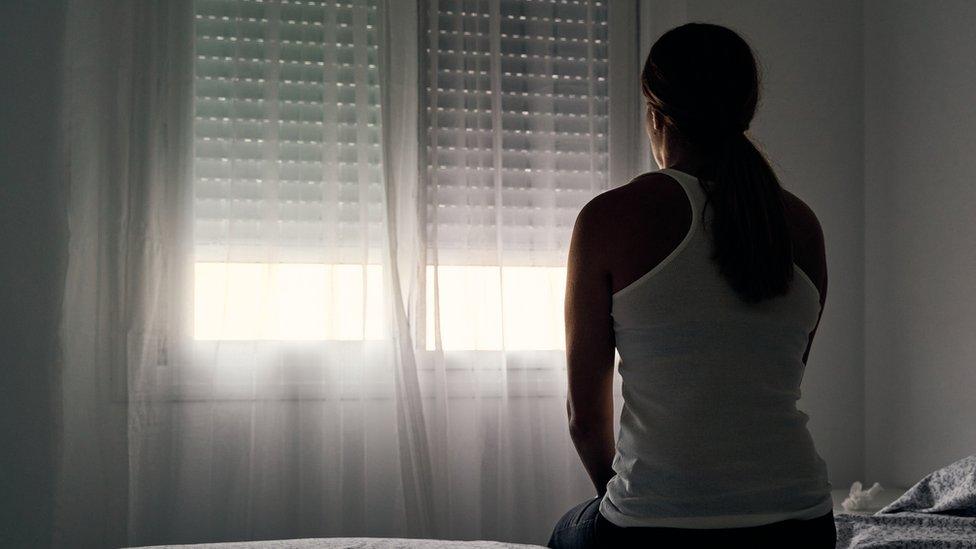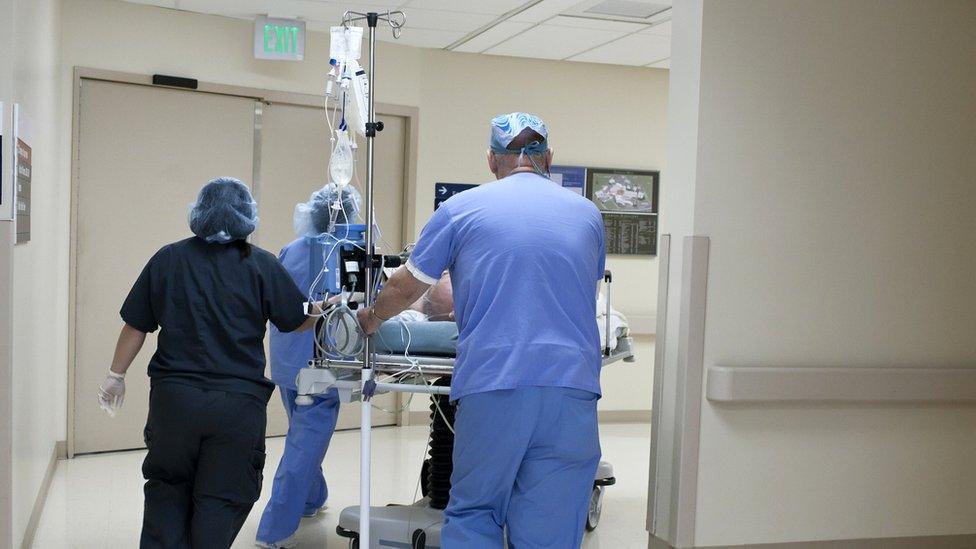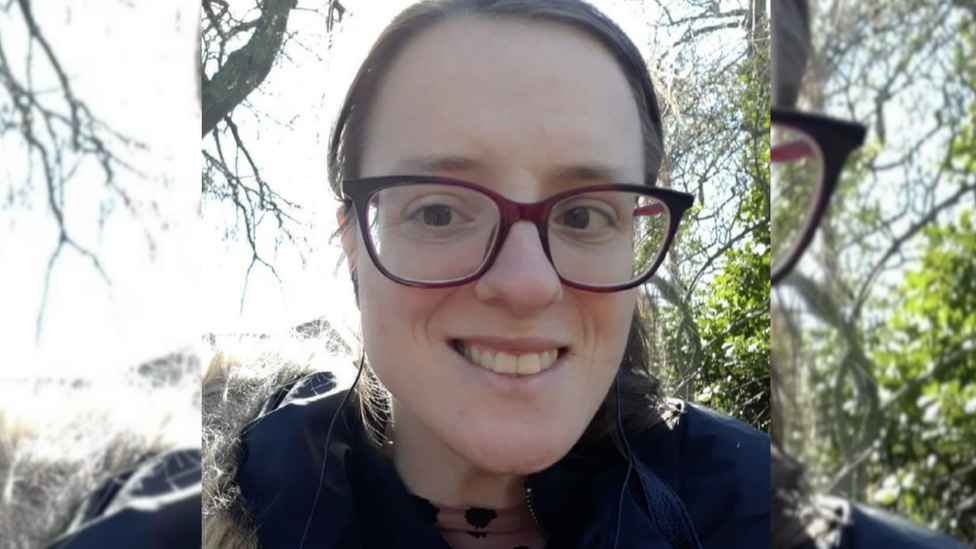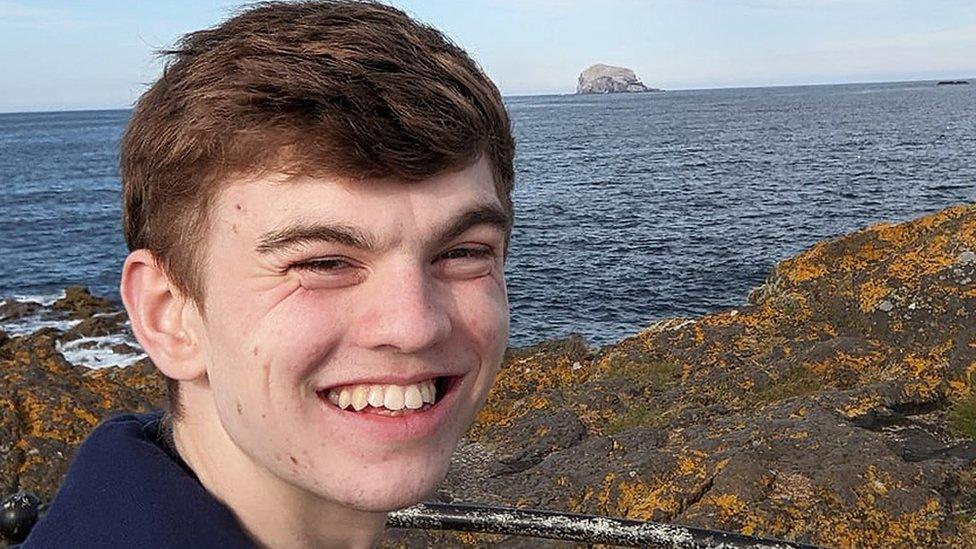Panel says US adults should get routine screening for anxiety
- Published

For the first time, a US government-backed expert panel has recommended that adults under 65 should be screened for anxiety disorders.
The influential US Preventive Services Task force also said that all adults should be checked for depression, consistent with past guidance.
The change follows widespread warnings from experts on the mental health toll of the Covid-19 pandemic.
The task force stopped short of a screening recommendation for suicide.
The panel acknowledged that suicide is a leading cause of death among American adults but said there was "not enough evidence on whether screening people without signs or symptoms will ultimately help prevent suicide".
In April, the panel issued similar guidance for children and adolescents, recommending anxiety screening for those aged between eight and 18.
The draft guidance is aimed at young and middle-aged adults, including those who are pregnant and post-partum. It envisions the mental health screening as part of routine visits with primary care physicians, said Dr Lori Pbert, a task-force member and professor in the Department of Population and Quantitative Health Sciences at UMass Chan Medical School.
"When you go to your primary care provider, you get screened for many, many preventive conditions - blood pressure, heart rate, all kinds of things," she said. "Mental health conditions are just important as other physical conditions, and we really need to be treating mental health conditions with the same urgency that we do other conditions."
The task force, comprised of 16 independent volunteers, provides guidance on preventive care measures. Insurance companies are often forced to cover services recommended by the task force, under a provision in the Affordable Care Act (informally known as Obamacare).
Tuesday's report referenced studies showing that screening improved identification and treatment of anxiety.
The recommendations are only for those who do not have a diagnosed mental health disorder or do not show recognised signs or symptoms.
"Anyone showing signs or symptoms of depression, anxiety, or suicide risk should be connected with care," Dr Pbert said.
Anxiety disorders - including generalised anxiety disorder, panic disorder and social anxiety, among others - are the most common mental illness in the US, affecting some 40 million adults every year.
"More common than strep throat," said Eugene Beresin, a psychiatrist who works as the executive director for the Clay Center for Young Healthy Minds, external.
The number of people suffering from mental illness jumped significantly over the course of the Covid-19 pandemic. A study published last year in the Lancet, external estimated that the pandemic led to an additional 53.2 million cases of major depressive disorder and 76.2 million cases of anxiety disorder across the world.
Experts have applauded the screening recommendation, but some - like Dr Beresin - have warned that screening alone will be insufficient to address a mounting mental health crisis.
"The problem is we don't have the work force to really take care of this," he told the BBC, adding that the country's 258 million adults had around 125,000 psychiatrists and psychologists between them.
"So what are we going to do?" he said.
Dr Pbert said she shares his concern.
The hope, she said, is that wide-spread screenings can bring awareness to an overburdened system.
"We know that we have an undersized mental health care workforce," she said. "We'll need to expand that workforce to meet the demand."
Related topics
- Published7 April 2021

- Published3 February 2022

- Published29 June 2022
